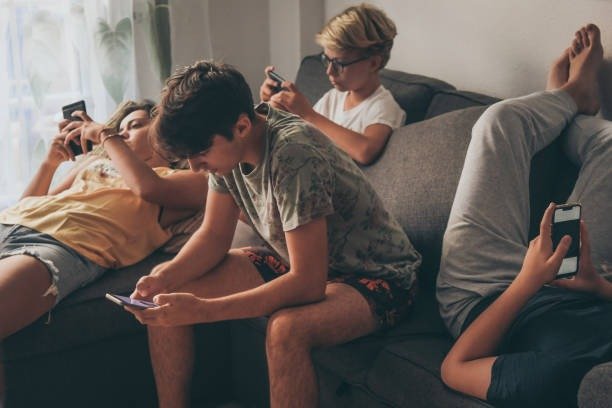5 Signs Your Teen Has a Phone Addiction

Source:https://www.parents.com/
A University of Arizona study examined smartphone use and mental health among 18 to 20-year-olds, who grew up with smart technology. Researchers focused on psychological dependence on smartphones rather than general usage. They found that addiction to smartphones is a predictor of depressive symptoms. The study highlighted that excessive reliance on smartphones can lead to increased anxiety and negatively impact daily life. Parents should watch for signs that their child’s phone use might be developing into a psychological dependence rather than just casual use.
Smartphone addiction, marked by a fear of losing Internet or cellular connection, is linked to mental health issues such as depression, anxiety, and loneliness. Research suggests that while it’s unclear whether phones cause these symptoms or if people with these symptoms become more dependent on their phones, it’s crucial to set sensible screen time limits for teens to prevent or manage these issues and support their mental well-being.
Signs of Phone Addiction
- lways keeping their phone on and with them
- Changes in behavior
- Difficulty with emotional regulation
- Extreme reactions when separated from their device
- Impatience, irritability, restlessness, inability to focus in school when separated from their phone
- Increased social challenges
- Sleep disturbances
- Spending more and more time on their phone
- Switching between multiple devices and programs (social networking, texting, gaming, etc.)
How Parents Can Help
- Rather than completely removing devices, it’s often more effective to monitor and adjust usage. Both Google and iPhone offer tools like Google Digital Wellness and Screen Time to track and limit phone use. Android Family Link allows parents to monitor and set screen-time limits remotely, and even lock devices for certain periods.
- Beyond physical restriction, providing a good example of healthy phone usage is important. Parents should be mindful of the amount of time we spend on our own phones and be role models for moderation. If our phones are in our hands every spare moment, our kids will follow suit.
- Spending time together, one-on-one without the distraction of screens is also important in helping kids foster healthy relationships outside of tech. Encouraging creative outlets, exercise, in-person socializing, and hands-on activities are an integral part of maintaining a healthy balance.
In, conclusion, smartphone apps, social media, and gaming are designed to encourage constant use, and teens may struggle to regulate their screen time without parental guidance. Caregivers should help them develop healthy usage habits. If a child shows signs of phone addiction or mental health issues, seek advice from healthcare professionals to help them learn effective coping strategies.
Read More: https://childreninfobank.com/safebank/5-signs-your-teen-has-a-phone-addiction/
Image Source: https://www.parents.com/





